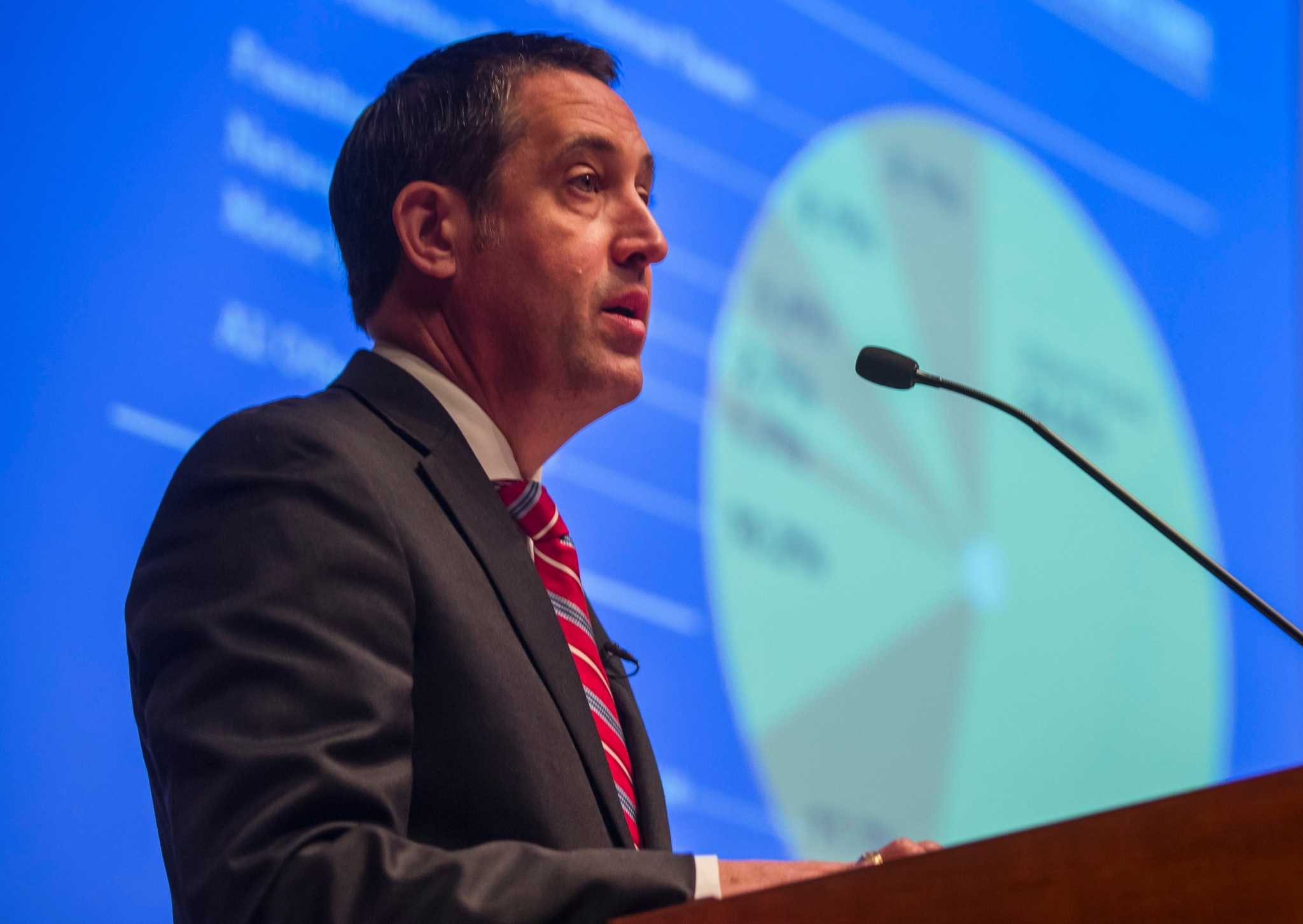politics
How Glenn Hegar's departure could affect 2026 Texas elections
A vacancy in a statewide elective office means the governor selects the replacement. And it could set off a scramble across the political landscape.
Published March 16, 2025 at 10:16am by John C. Moritz

Texas Comptroller Glenn Hegar has been picked as the lone finalist for the Texas A&M University System's chancellor post. His departure would let Gov. Greg Abbott appoint someone for the remainder of the comptroller's four-year term.
Glenn Hegar might be about to start a food fight, or at least the political equivalent of one.
It's not that the three-term Republican state comptroller is a troublemaker. It's just that he's vacating a powerful statewide elective office that a lot of other people might want to fill.
Hegar, 54, was recently named the sole finalist in the national search to replace retiring Texas A&M University System Chancellor John Sharp. By law, the Texas A&M board of regents had to name a finalist for the position before actually offering the job. Barring a lightning strike that nobody sees coming, Hegar will leave office soon after Sharp ends his 14-year run as Aggie-in-chief sometime in June.
Just hours after the regents announced their final pick for the system's top job, Texas Railroad Commissioner Christi Craddick announced her candidacy for comptroller in the 2026 election cycle. Not long after, former state Sen. Don Huffines said he'd be running as well. The buzz around the Capitol is that a lawmaker or two are also interested in the job that's often to referred to as the chief financial officer of the state.
But we're getting a little ahead of ourselves.
Once the comptroller's office becomes vacant, it will be up to Gov. Greg Abbott to name a replacement to serve out the remainder of Hegar's four-year term. Technically, that appointment would require Senate confirmation. However, the regular session of the Legislature will have ended before Hegar steps aside, so senators won't weigh in unless Abbott calls a special session.
If Craddick and Huffines, both Republicans, are the only announced candidates when the office becomes vacant, it wouldn't be terribly surprising if the governor names Craddick to the post since Huffines challenged Abbott in the 2022 GOP primary and had few nice things to say about the incumbent who was seeking a third term.
A Craddick appointment would mean a vacancy in the three-member Railroad Commission, and it would be up to Abbott to fill that post temporarily. Craddick's six-year term ends in 2028, but the appointee's term would end in 2026. A special election would need to be called next year to fill the final two years left in the term.
If other Republicans step forward, that would likely complicate Abbott's decision, especially if the would-be contenders were his supporters. He could choose to elevate one ally and risk disappointing the others. Or, say he decided on Craddick, he could offer one of the others a spot on the Railroad Commission.
Another scenario would be to appoint a caretaker, someone who would "manage" the office but wouldn't be interested in running for it. It would stand to reason that an appointee from the political ranks would have a big leg up in the 2026 primaries.
(Fun fact on the most recent gubernatorial appointment of a comptroller. It came in 1949 after George H. Sheppard died in office. It went to Robert Calvert, who went on to win the office in his own right in 1950 and then was reelected 11 straight times back when the term was only two years. He retired after the 1974 election.)
Now, let's look at the great unknown that can affect not only the comptroller's race, but pretty much all the statewide contests next year. We are a year away from the March 2026 primaries and the present political landscape is a bit of a jumble.
President Donald Trump appears to have retained his tight grip on the Republican establishment, but some of his early term actions could scramble that. His whiplash-inducing decisions, reversed decisions and reinstated decisions on tariffs have done nothing to ensure the stability and predictability that Wall Street craves.
For consumers, tariffs could drive up the cost of not only the products on which they are levied, but also the price of everything else. Absent war or the rumblings of war, nothing is a greater indicator of where the political winds are going to blow than the overall health of the economy and the overall state of voters' personal finances.
And that brings us back to the aforementioned possibility of a food fight. Under normal circumstances heading into a statewide election cycle, such food fights, rare as they have been in recent years, mattered only on the Republican side in Texas.
But if the economy finds itself in a mess as 2026 approaches and progresses, it opens at least a sliver of a window for the Democrats who will eagerly blame Trump and any Republican who has ever said a kind word about him.

